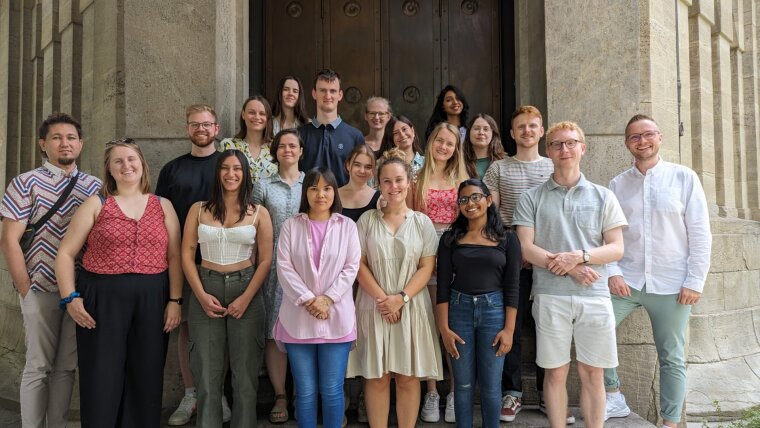
Published:
The IOCM Summer School 2023, entitled "Planning for Peace: Understanding Multidimensionality and Integration in UN Peace Operations," was organized by Steve Biedermann and took place from July 7 to 9 and 17 to 18. The 20 participants, including guests from Leiden University and the Otto von Guericke University of Magdeburg, focused on the meaning, implication, and challenges of multidimensionality and integration as two essential features of United Nations Peace Operations (UNPOs).
These operations constitute a central – and probably the most visible – tool in the UN's pursuit of international peace and security. They are deployed to manage international conflicts, ranging from preventive measures to post-conflict reconstruction, operate in different settings, and appear in various forms, including civilian, military, and police personnel. Their mandates include the monitoring of peace agreements, disarmament of combatants, observation of elections, the countering of terrorist activities, and the creation of stable institutions to ensure security, human rights, and the rule of law. This range of activities and participating actors illustrate UNPO's multidimensional character, creating the need for integrated planning and implementation.
Through workshop sessions and discussions, participants first gained an overview of UNPO's historical development, purposes, functioning, challenges, and the fundamentals of the mission planning process. These sessions also included guest lectures by experts from the Stabilisation Platform Berlin, the Bundeswehr Command and Staff College in Hamburg, and the headquarters of the United Nations Organization Stabilization Mission in the Democratic Republic of the Congo (MONUSCO) in Kinshasa. Building on this, participants simulated an Integrated Mission Task Force for two days and planned the fictional UN Yemen Advanced Mission (UNYAM). During the simulation, they assumed different roles in given mission components – including political, humanitarian, and military affairs – and developed plans and strategies to coherently implement the mission's mandate. Intensive work and discussions were required to coordinate the different rationales of the actors involved and match the component-specific as well as overarching requirements. Despite tensions between the political, humanitarian, and military planning elements regarding strategies and resources, the participants eventually drafted a coherent mission concept and thus prepared UNYAM's deployment.
We thank all participants and contributors. A special thanks goes to Julie Marie Brischar and Jonas Georg Läster, who, as assistants, fundamentally contributed to implementing the IOCM Summer School 2023.




